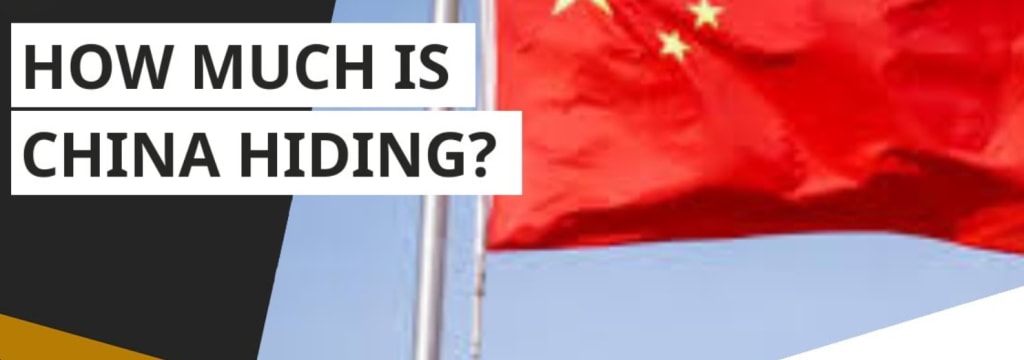
Introduction
Picture yourself walking through a maze, with walls so high that you can’t see what lies ahead. Each turn brings a new challenge, and you’re never quite sure if you’re heading in the right direction. This is the experience many people have when trying to understand China’s policies of secrecy. For decades, China has kept its secrets tightly guarded, leaving the rest of the world to wonder what’s really going on behind those walls. In this article, we’ll delve into the world of Chinese secrecy and explore why China is so determined to keep its secrets from the rest of the world. From its history of secrecy to the Great Firewall of China, from human rights violations to economic data manipulation, we’ll take a deep dive into the cost of China’s secrecy on global relations and human rights. So buckle up, because we’re about to embark on a journey that will shed light on one of the world’s most enigmatic superpowers.
Historical context
To understand China’s policies of secrecy, we must first explore its history. China has a long and complex history, dating back thousands of years. It’s a history that’s marked by moments of great openness and moments of great secrecy. In ancient China, secrets were kept to protect the empire from invading forces. But over time, the idea of secrecy became a tool of the ruling class to maintain control.
Fast forward to the 20th century, and we see the rise of communism in China. The Communist Party of China (CPC) came to power in 1949, and with it came a new era of secrecy. The CPC saw secrecy as a necessary means to protect the revolution from foreign interference. This was especially true during the Cold War, when China aligned itself with the Soviet Union.
In the years that followed, China’s secrecy became increasingly ingrained in its political culture. The government’s tight control over information extended to the media and the internet, as well as to its own citizens. As a result, China has become one of the most closed societies in the world, with little transparency into its government or its policies.
Today, China’s history of secrecy has a significant impact on its relations with other countries. The rest of the world is left to wonder what China is up to, and whether its intentions are benign or malign. It’s a situation that creates uncertainty and mistrust, and one that has important implications for global stability and human rights.
The Great Firewall of China
China’s policies of secrecy are perhaps most evident in its use of the Great Firewall of China. The Great Firewall is a sophisticated system of censorship and surveillance that allows the Chinese government to control what its citizens can see and say online. The system is designed to block access to websites that the government deems unacceptable, including social media platforms like Facebook and Twitter, as well as news websites and search engines.
The Great Firewall is just one part of China’s larger system of internet censorship and surveillance. The government also employs an army of internet police who monitor online activity and punish those who speak out against the government. This system of control has led many to describe China as having an “internet dictatorship.”
The purpose of the Great Firewall is to prevent dissent and maintain control over the population. But it also has significant implications for the rest of the world. The firewall effectively creates a separate Chinese internet, one that is cut off from the rest of the world. This means that Chinese citizens have limited access to information and ideas from outside their own country, and the rest of the world has limited access to information from within China.
The impact of the Great Firewall on global relations cannot be overstated. It’s a system that creates barriers to communication and trade, and one that fuels mistrust and suspicion between China and the rest of the world. And as China continues to rise as a global superpower, the impact of the Great Firewall is only likely to grow.
Secrets of the Chinese government
While the Great Firewall is perhaps the most visible example of China’s policies of secrecy, it’s just one piece of a larger puzzle. The Chinese government keeps a tight lid on information across a range of areas, from economic data to human rights abuses. Here are just a few examples of the secrets that the Chinese government keeps:
Communist Party of China and its secrets: The Communist Party of China is the country’s ruling party, but very little is known about its inner workings. The party’s decision-making processes are shrouded in secrecy, and its top leaders rarely give interviews or make public statements. This lack of transparency has fueled speculation about the party’s true intentions and created uncertainty about its long-term plans.
Human rights violations: China has a long history of human rights abuses, particularly against ethnic and religious minorities. The government’s policies in Xinjiang, where it has detained over a million Uyghur Muslims in reeducation camps, have drawn international condemnation. But these abuses extend beyond Xinjiang, with reports of torture, forced labor, and suppression of free speech and political dissent.
Economic data manipulation: China is the world’s second-largest economy, but there are concerns about the accuracy of its economic data. The government has been accused of manipulating its GDP figures, as well as other economic indicators, to make the economy appear stronger than it really is. This lack of transparency makes it difficult for investors and policymakers to make informed decisions about China’s economic prospects.
Censorship of media and the internet: As mentioned earlier, the Chinese government has strict controls over the media and the internet. It censors news stories, blocks social media sites, and punishes those who speak out against the government. This censorship has a chilling effect on free speech and creates a climate of fear and self-censorship.
These are just a few examples of the secrets that the Chinese government keeps. The lack of transparency and accountability has significant implications for global relations and human rights. Without access to accurate information, it’s difficult for the rest of the world to understand China’s true intentions and to hold it accountable for its actions.
The Future of China’s Secrets
Looking to the future, it’s unclear how China’s policies of secrecy will evolve. On one hand, there are signs that the Chinese government is becoming more assertive and less willing to compromise on issues like human rights and territorial disputes. This could lead to increased tensions with the rest of the world and a greater push for secrecy.
At the same time, there are also signs that China is recognizing the need for greater openness and transparency. For example, the government has recently taken steps to make its economic data more accurate and reliable. And in the wake of the COVID-19 pandemic, there has been pressure from the international community for China to be more transparent about its handling of the outbreak.
Ultimately, the future of China’s secrets will depend on a complex array of factors, including domestic politics, international relations, and technological developments. It’s clear, however, that China’s policies of secrecy have important implications for global stability and human rights. The rest of the world will need to navigate these challenges carefully, balancing the need to engage with China against the imperative of holding it accountable for its actions.
Conclusion
In conclusion, China’s policies of secrecy pose significant challenges for the rest of the world. The country’s use of the Great Firewall and other forms of censorship and surveillance limit access to information and ideas, both within China and abroad. At the same time, the Chinese government keeps a tight lid on a range of issues, from economic data to human rights abuses, creating a lack of transparency and accountability that has significant implications for global relations and human rights.
As China continues to rise as a global superpower, it’s likely that its policies of secrecy will continue to be a major challenge for the rest of the world. At the same time, there are also signs that China may be recognizing the need for greater openness and transparency, particularly in areas like economic data. The future of China’s secrets, therefore, remains uncertain.
What is clear, however, is that the rest of the world will need to navigate these challenges carefully, balancing the need to engage with China against the imperative of holding it accountable for its actions. By working together and promoting transparency and accountability, we can ensure that China’s rise is a positive force for the world, rather than a source of tension and mistrust.
About the Creator
Samuel
I write about Science/Tech/Business & Anything that can give value to people ❤️
I'm on YouTube too guys feel free to check out my channel here: www.youtube.com/@sambladeco






Comments
There are no comments for this story
Be the first to respond and start the conversation.